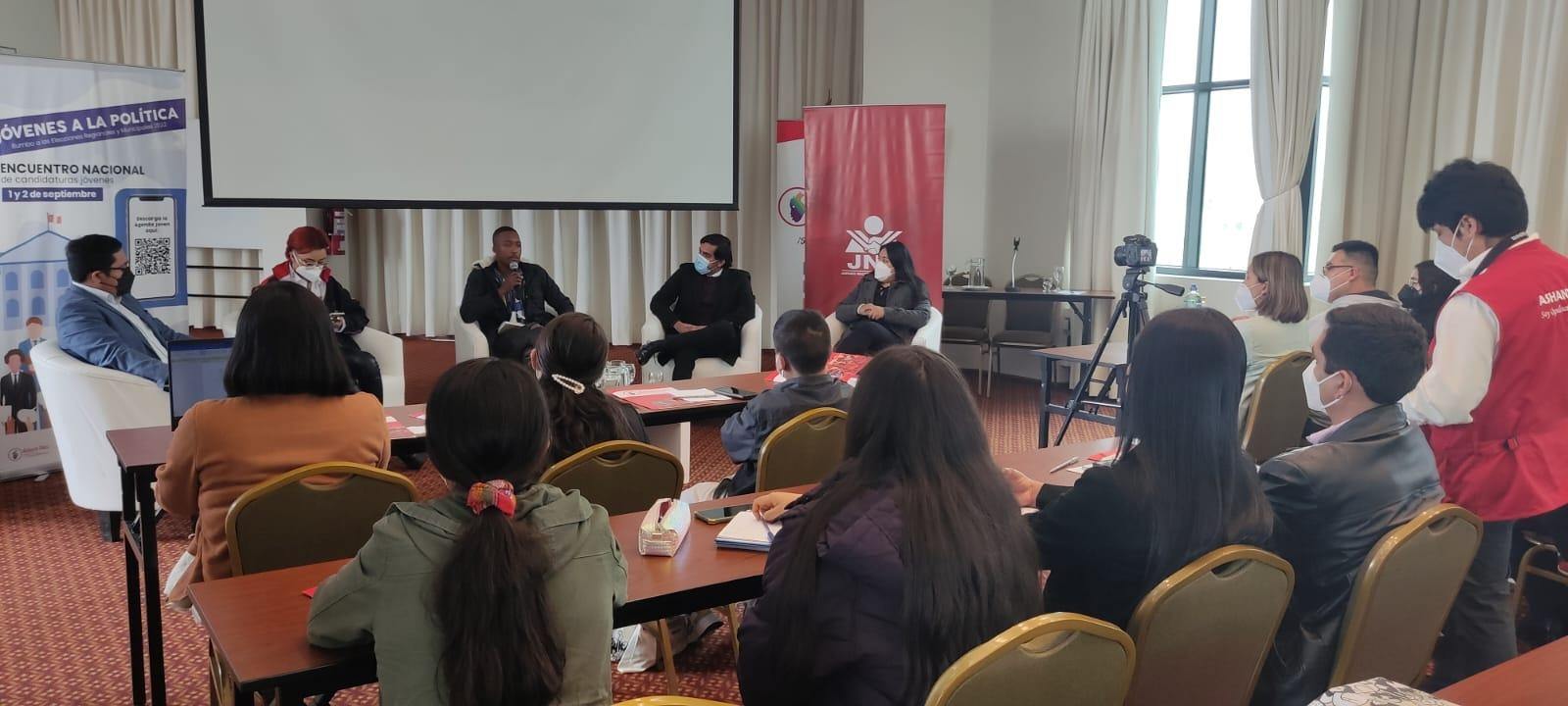
SHARE
While the unrest in the country has rightfully drawn the world’s attention, it is only one of a series of challenges facing the political system in Peru. The country’s political reality is one of deep political and cultural divisions and political parties that lack resilient and effective structures, such as an absence of strong internal policies designed to increase diversity, equity and inclusion (DEI) in political parties and processes, which is an issue in a country as diverse and polarized as Peru. In response, the National Democratic Institute (NDI) and the Consortium for Elections and Political Process Strengthening (CEPPS) engaged candidates and political parties to bolster DEI ahead of the 2022 Peruvian regional and municipal elections. By providing resources, conducting trainings and engaging key actors on the topic, NDI and CEPPS helped center the importance of DEI in political processes in Peru.
One large DEI issue is that political parties in Peru often lack the structures and resources to train their candidates, especially candidates in underserved areas and from marginalized backgrounds. This includes using social media in electoral campaigns, given the widespread and rapid uptake of social media in Peru, to develop messages based on policy proposals. In advance of the October 2022 election, NDI trained over 1,400 candidates and party members on campaign management, political messaging, media relations and social media management in geographically and demographically diverse regions of Peru and many events intersected with NDI’s work on DEI and with relevant groups of interest, such as specifically training youth candidates about effective campaign messaging. NDI also conducted a multiparty international exchange of experiences for Indigenous candidates with prior candidates from Colombia and Ecuador; and an international exchange for lesbian, gay, bisexual, transgender, queer and intersex + (LGBTQI+) candidates with local partners that promote LGBTQI+ rights and experts from Colombia and Mexico. One candidate for city council reported that “the training to counter political harassment allowed me to incorporate training for rural women to combat stereotypes and to prioritize the role of rural women in my campaign.”
NDI also assisted local partner Digital Democracy (Democracia Digital) in conducting a campaign raising awareness of electoral disinformation from an inclusion lens, how to identify and combat it and how it negatively affects all Peruvians. The campaign consisted of four short animated videos with characters representing diverse Peruvian people describing what disinformation, online polarization and hate speech are and how they affect the public. It also included a digital guide and online posters to fight fake news. The videos reached nearly 510,000 people and local news outlets, including Feel Trujillo (Siente Trujillo), Digital TV Go and B&S Television, independently used campaign materials to further educate their viewers. Political parties also received campaign materials as tools their constituents can use to fight disinformation. These materials will help educate the public on the importance of DEI in political processes and how their actions online can help or hinder the advancement of DEI.
After the October 2022 regional and municipal elections, NDI commissioned a final report on DEI in recent and future elections. The report included chapters on Afro-descendent, Indigenous and LGBTQI+ representation. Recommendations included, for example:
-
Allowing increased opportunities for LGBTQI+ candidates to self-identify to electoral authorities as belonging to a marginalized group, both to be able to raise their own electoral profiles and to facilitate research into LGBTQI+ candidacies in Peru;
-
A call to action for Afro-Peruvian organizations to provide political training to Afro-Peruvian people; and
-
The possibility of establishing quotas in which protected groups elect the representatives.
NDI then presented the report at an event in Lima with the participation of the authors of the report, the director of the Center for Ethnic Development (Centro de Desarrollo Étnico, CEDET), a scholar of indigenous representation in Peru and the director of the Center for the Promotion and Defense of Sexual and Reproductive Rights (Centro de Promoción y Defensa de los Derechos Sexuales y Reproductivos, PROMSEX); as well as an Uruguayan racial justice advocate and the former president of Colombia’s National Electoral Council (Consejo Nacional Electoral, CNE). The Uruguayan racial justice advocate explained his paradigm on DEI, saying “as human beings, we will never completely understand each other, but we should learn from our differences… If I put myself in the shoes of another, they will never fit me perfectly. What we should do is dialogue to understand each other, comprehend each others’ needs and create spaces in which we can work together and provide a space for every voice.” The report’s publication also opened lines of dialogue between the coalition of 19 Afro-Peruvian organizations that drafted recommendations and the JNE where there had previously been no coordination.
For Peru’s political and security situation to improve, voices that, for so long, have been frustrated and excluded from effective political decision making will need to be included. The country’s political processes will need to more fully embrace and comprehend the country’s diversity, ensure equity for marginalized groups and include voices that have previously been excluded from politics. A strong Peruvian democracy is one in which all voices are heard, included and taken seriously. NDI and CEPPS will continue advocating for more DEI in Peru and in the broader region.
Author: Owen Fitzgerald, Program Associate
NDI’s engagement with this program is implemented with support from the United States Agency for International Development (USAID) through the Consortium for Elections and Political Process Strengthening (CEPPS)
###
NDI is a non-profit, non-partisan, non-governmental organization that works in partnership around the world to strengthen and safeguard democratic institutions, processes, norms and values to secure a better quality of life for all. NDI envisions a world where democracy and freedom prevail, with dignity for all.


